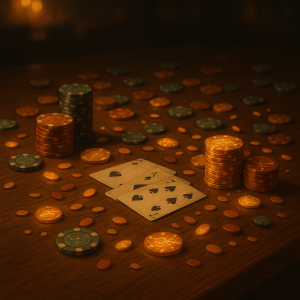Understanding neurochemical responses to gambling outcomes reveals complex brain mechanisms that drive player behavior at platforms like https://spinanga-online.com, offering insights into both recreational gaming and problematic usage patterns.
The Brain’s Reward Circuit
 Our brains contain sophisticated reward pathways that evolved to reinforce survival behaviors like eating and reproduction. These same neural circuits activate during gambling activities, creating powerful psychological responses that influence decision-making processes.
Our brains contain sophisticated reward pathways that evolved to reinforce survival behaviors like eating and reproduction. These same neural circuits activate during gambling activities, creating powerful psychological responses that influence decision-making processes.
When players experience wins, their brains release dopamine in the nucleus accumbens, a region central to pleasure and motivation. This neurochemical surge creates feelings of euphoria and reinforces the desire to continue playing, forming the biological foundation of gambling’s appeal.
Neurochemical Responses to Wins and Losses
Winning triggers dopamine release not just from the reward itself, but from the anticipation leading up to it. Research shows that slot machines and other games of chance, including those at Spinanga Online, activate these pathways most intensely during moments of uncertainty, when outcomes remain unknown.
Surprisingly, losses also stimulate dopamine production, though through different mechanisms. The brain interprets near-misses as learning opportunities, maintaining engagement even when players don’t win. This “almost winning” sensation keeps the reward system active and encourages continued play.
The Role of Unpredictability
Random reward schedules prove more psychologically compelling than predictable ones. When outcomes vary unpredictably, the brain maintains heightened dopamine sensitivity, creating stronger motivation to continue seeking rewards.
Understanding Addiction Pathways
Repeated gambling exposure can alter brain chemistry over time. The reward system becomes less sensitive to natural pleasures while requiring increasingly intense stimulation to achieve the same dopamine response.
This neuroplasticity explains why some individuals develop tolerance, experiencing:
- Need for higher stakes to feel satisfaction
- Requirement for longer playing sessions
- Diminished pleasure from natural rewards The brain essentially rewires itself around gambling activities, prioritizing these behaviors over other rewarding experiences.

Addiction develops when gambling becomes the primary source of dopamine activation, overshadowing natural rewards like social connections, achievements, or hobbies.
Stress hormones like cortisol also play crucial roles in gambling behavior. Chronic stress can drive individuals toward gambling as a coping mechanism, while gambling losses create additional stress, forming potentially harmful cycles.
Protective Neurochemical Factors

Understanding these mechanisms helps identify protective strategies:
- Regular exercise maintains healthy dopamine function
- Social connections provide natural reward alternatives
- Engaging hobbies reduce vulnerability to problematic patterns
Mindfulness practices can strengthen the prefrontal cortex, the brain region responsible for impulse control and decision-making. This enhanced self-regulation helps individuals recognize when gambling stops being recreational and becomes compulsive.
Recognition of these neurochemical processes empowers both players and operators to make informed decisions about gambling engagement, promoting healthier relationships with gaming activities while acknowledging the powerful biological forces at play.








